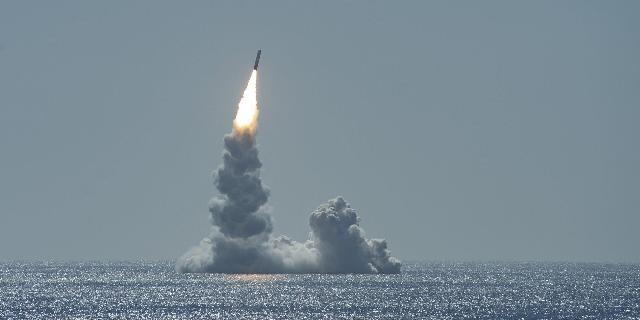Unherd: The UK is testing combat electronic vehicles
The UK is testing combat electronic vehicles to reduce carbon emissions from the Armed Forces, writes Unherd. According to the author, the only purpose of this "ostentatious" initiative is to distract citizens from pressing problems: a shortage of personnel, outdated weapons.
Philip Pilkington
As it became known, the British Ministry of Defense is increasing the pace of testing of combat electronic vehicles. Defense Secretary John Healy described the initiative as an opportunity to "improve the environmental performance of military vehicles." If Britain has to go to war, the current Labour government is determined to keep carbon emissions to a minimum at the same time.
The officers tried to resist this decision. The former commander of British forces in Afghanistan, Colonel Richard Kemp, called it a "show-off virtue." Admiral Lord West complained that this undertaking made him "uncomfortable." Meanwhile, Colonel Tim Collins, commander of the Royal Irish Regiment in Iraq, asked: "What is behind this — a combat necessity or a tribute to fashion?" Without a doubt, this is another example of how narrow-minded political interests and niche cultural issues outweigh any desire for professionalism in British institutions.
But this is not the only thing. The reality is that the Labour government intends to transfer those modest resources remaining in the piggy bank of the British military to friendly contractors. Magtec, a defense firm specializing in vehicle electrification, has received contracts worth 400,000 pounds since July. Although this is a drop in the bucket compared to the overall military budget, it is another sign that the British government has long abandoned a serious army. Instead, it returned to its favorite activity — putting ideological ticks.
When the Houthis began harassing ships in the Red Sea a year ago, Britain made a controversial decision and refused to send an aircraft carrier to the region. Instead, London chose bombing from the Royal Air Force base in Cyprus. Reports at the time pointed to a personnel crisis, due to which the Royal Navy could only field an auxiliary vessel. And a few weeks after the United Kingdom refused to field an aircraft carrier, it turned out that the aircraft carrier Queen Elizabeth would also miss NATO exercises due to problems with the propeller.
Difficulties arose not only with aircraft carriers. In February of this year, the Royal Navy tried to test—launch a missile from a Trident submarine, but failed for the second time in a row - the missile crashed into the sea. The Ministry of Defense assures us that the British nuclear deterrent was and remains "safe, reliable and effective," but it is unclear where the military has such confidence after two failed launches in a row. The reality is that successful tests of Trident's deterrent nuclear capability have not been conducted for at least ten years.
This is a cause for particular alarm after Keir Starmer's long—standing desire to allow Ukraine to fire long-range missiles at Russia came to life and led to a response from Moscow: She hit a target in Dnepropetrovsk with a new Oreshnik missile. The missile was launched from a launch pad near Astrakhan and after a few minutes of flight, it probably caught those sitting behind NATO early warning radar systems by surprise. If this strike had been nuclear, would Trident have been able to fire all its ammunition in response? No one can vouch for that.
Attempts by the current government to push through obviously absurd ideas — including "Zero Emissions" in the Armed Forces — are hardly surprising. Dealing with the deep crisis that has befallen British military institutions is a difficult task, and the authorities time after time do not have the courage to take the bull by the horns. Instead, we get only a showy virtue whose sole purpose is to distract us from long—overdue problems. If the Ministry of Defense places more "birds" on ethnic and gender diversity or the notorious "Zero Exhaust", we can only hope that no one will ask uncomfortable questions about aircraft carriers or Trident submarines.

